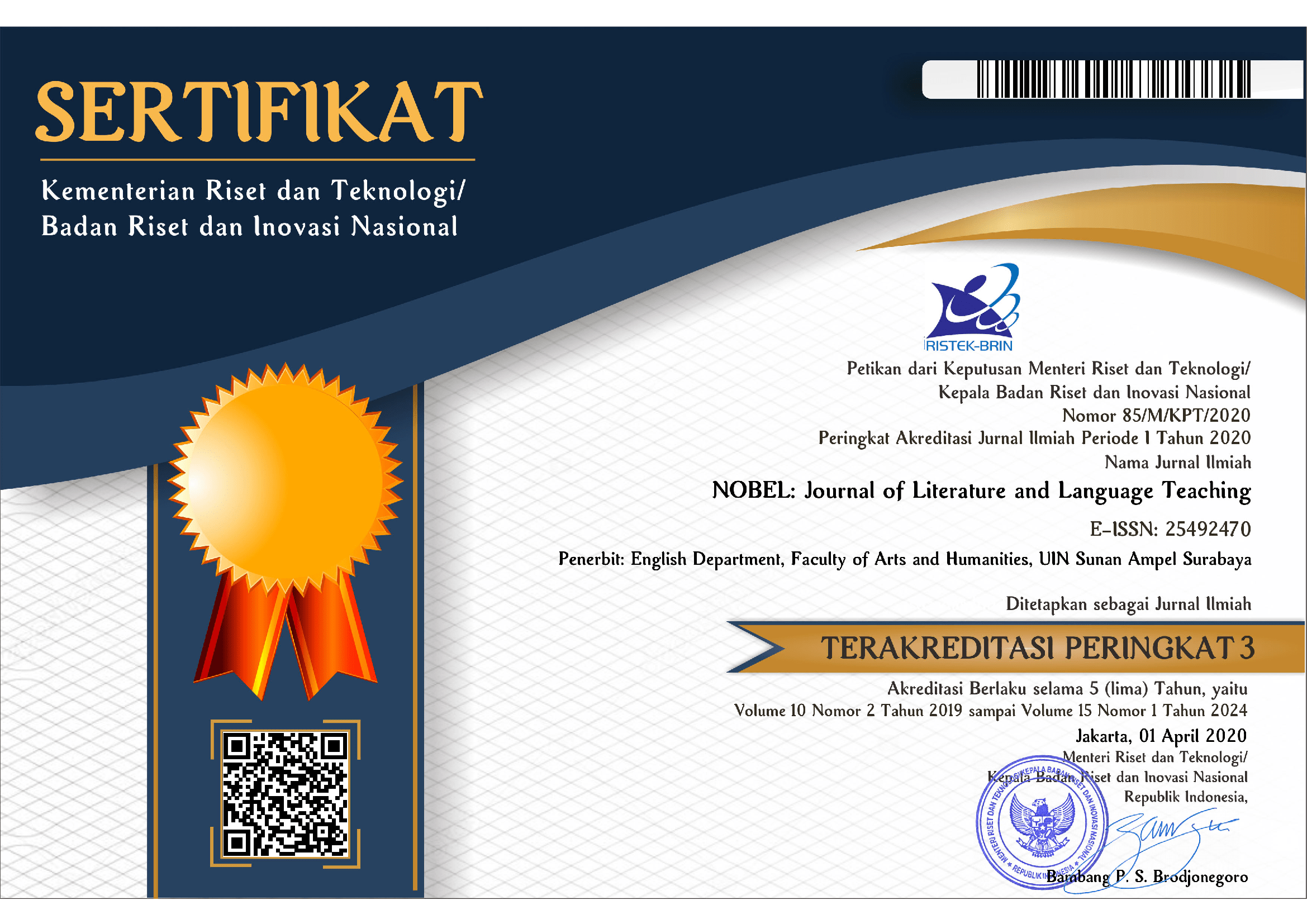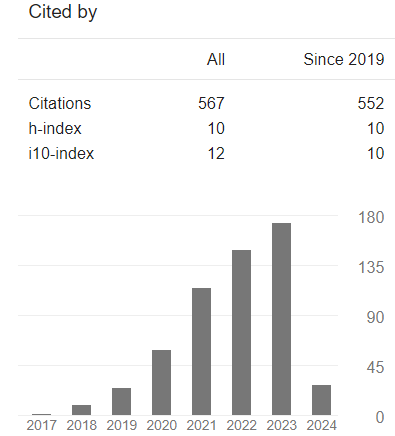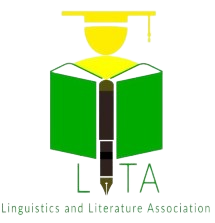Identity Negotiation in the Age of Global Migration in Exophonic Novels
DOI:
https://doi.org/10.15642/NOBEL.2021.12.2.168-187Keywords:
identity; early 2000s novels; exophony; global migrationAbstract
The vast changing of the cultural structure caused by globalization and migration has a complicated identity. A higher number of migrants from numerous parts of the world has arisen lately, especially from Middle Eastern and Muslim countries facing various conflicts. Negotiating identities, thus, becomes inevitable, particularly for migrants. Identity negotiation has been frequently raised as an underlying issue in early 2000s literary works. Such an era becomes a worth researching topic on migration as portrayed in exophonic novels. Exophony refers to writing and producing literary works in a language that is not one’s mother tongue. The article covers the analysis of novels written by exophonic writers: Khaled Hosseini’s The Kite Runner (2003), Elif Shafak’s The Bastard of Istanbul (2006), and Mohsin Hamid’s The Reluctant Fundamentalist (2007). The analysis focuses on identity negotiation experienced by Muslim diaspora characters by employing Homi K. Bhabha’s cultural identity. This study reveals that identity negotiation often occurs in the context of power relations and can occasionally be hegemonizing. This notion is backed by the fact that the complexity of the identity negotiation process occurs not only at the intersection of opposed cultures or civilizations but also at the intersection of politics and power relations.
Downloads
References
Abrams, M. H. (1953). The mirror and the lamp: Romantic theory and the critical tradition. Oxford: Oxford University Press.
Ameur, H. & Kessal, N. (2019). Hybrid cultural identities in Elif Shafak’s The bastard of Istanbul [Doctoral dissertation, Université Mohamed Boudiaf de M'Sila]. DSpace-UMBM. http://dspace.univ-msila.dz:8080//xmlui/handle/123456789/15191
Andrews, G. (2010). Representation and identity in the wake of 9/11: Khaled Hosseini’s The kite runner, Mohsin Hamid’s The reluctant fundamentalist, Frédéric Beigbeder’s Windows on the world and Don DeLillo’s Falling man [Doctoral dissertation, University of Stellenbosch]. SUNScholar Research Repository. http://scholar.sun.ac.za/handle/10019.1/5384
Aubry, T. (2009). Afghanistan meets the Amazon: Reading The kite runner in America. PMLA, 124(1). 25-43. https://doi.org/10.1632/pmla.2009.124.1.25
Barker, C. (2008). Cultural studies theory and practice. London: SAGE Publications.
Bedell, G. (2007). Book review: This Turkeys’s been overstuffed. The Guardian. Retrieved from https://www.theguardian.com/books/2007/jul/29/fiction.features1
Bhabha, H. K. (1994). The location of culture. London: Routledge.
Castells, M. (2010a). The power of identity. Oxford: Blackwell Publishing.
Castells, M. (2010b). The rise of the network society. Oxford: Blackwell Publishing.
Chakraborty, N. (2019) Contesting spaces and conflicting memories: A reading of Armenian diaspora in Elif Shafak’s ‘The bastard of Istanbul’. Migration and Diaspora: An Interdisciplinary Journal, 2(1), 54-67. https://grfdt.com/Upload/JournalGallery/1_2257979_Nabanita%20Chakraborty.pdf
El Samad, S. (2020). Beyond the cataclysm: Cultural nationalism in McCarthy’s The road and Hamid’s The reluctant fundamentalist. International Journal of Arabic-English Studies, 20(2): 187-204. https://doi.org/10.33806/ijaes2000.20.2.10
Furlanetto, E. (2014). “Safe spaces of the like-minded”: The search for a hybrid post-Ottoman identity in Elif Shafak’s ‘The bastard of Istanbul’. Commonwealth Essays and Studies, 36(2), 19-31. https://search.informit.org/doi/10.3316/informit.583110019159976
Gillespie, T. (2010). Doing literary criticism: Helping students engage with challenging texts. Stenhouse: Stenhouse Publishers.
Ghosh, A. (2013). “I was not certain where I belonged”: Integration and Alienation in Mohsin Hamid’s The Reluctant Fundamentalist. Rupkatha Journal on Interdisciplinary Studies in Humanities, 5(1), 48-54. http://rupkatha.com/V5/n1/05_Mohsin_Hamid_Reluctant_Fundamentalist.pdf
Hamid, M. (2017). Exit west. New York: Riverhead Books.
Hamid, M. (2007). The reluctant fundamentalist. London: Hamish Hamilton.
Hoby, H. (May 31, 2013). Khaled Hosseini: ‘If I could go back now, I’d take The kite runner apart. The Guardian. Retrieved from https://www.theguardian.com/books/2013/jun/01/khaled-hosseini-kite-runner-interview
Hosseini, A. S., & Zohdi, E. (2016). The kite runner and the problem of racism and ethnicity. International Letters of Social and Humanistic Sciences, 74, 33-40. https://doi.org/10.18052/www.scipress.com/ILSHS.74.33
Hosseini, K. (2003). The kite runner. New York: Riverhead Books.
Howarth, C. (2002) Identity in whose eyes?: The role of representations in identity construction. Journal for the Theory of Social Behaviour, 32(2): 145-162 https://doi.org/10.1111/1468-5914.00181
Jabbar, N. (April 29, 2014). Novelist Mohsin Hamid shares his international perspective. McCoy Family Center for Ethics in Society. Retrieved from https://ethicsinsociety.stanford.edu/research-outreach/buzz-blog/novelist-mohsin-hamid-shares-his-international-perspective
Kabeer, H., & Chaudhary, P. (2020). Afghan minorities and ethnic tension in The kite runner and A thousand splendid suns. European Journal of Molecular & Clinical Medicine, 7(3), 1415-1425. https://ejmcm.com/article_3399.html
Kádár, J. Á. (2018). Multicultural identity negotiation in recent Canadian mixed-blood narratives: Boyden’s Three day road. The Central European Journal of Canadian Studies, 12(13), 133-144. https://digilib.phil.muni.cz/handle/11222.digilib/138499
Kaid, N. (2013). Hyphenated selves: Arab American women identity negotiation in the works of contemporary Arab American women writers [Unpublished doctoral dissertation]. University of Oran.
Khan, S. (2015). Alienated muslim identity in the post-9/11 America: A transnational study of The reluctant fundamentalist. South Asian Review, 36(3), 141-160. https://doi.org/10.1080/02759527.2015.11933039
Kiran, S. (2013). Identity crisis as reflected in selected works: The reluctant fundamentalist by Mohsin Hamid and The black album by Hanif Kureishi. International Journal of Linguistics and Communication, 1(2), 34-40. http://ijlcnet.com/journals/ijlc/Vol_1_No_2_December_2013/4.pdf
Li, P.S. (2008). World migration in the age of globalization: Policy implications and challenges. New Zealand Population Review, 33, 1-22. https://www.population.org.nz/app/uploads/2010/01/nzpr-33-and-34.pdf#page=5
Laurenson, D. & Alan S. (1972). The sociology of literature. London: Granada Publishing Limited.
Malika, T. (2019). History between memory and amnesia in Elif Shafak’s The bastard of Istanbul [Master’s Thesis, University of Abdelhamid Ibn Badis]. E-biblio.univ-mosta.dz. http://e-biblio.univ-mosta.dz/bitstream/handle/123456789/17607/Masters%20Dissertation%20Touati%20Malika.pdf?sequence=1
Nurcahyani, E., & Kamil, M. S. (2021). Identity negotiation of Chinese American’s twoness in Lisa Ko’s The leavers: Postcolonial approach. Journal of English Language Studies, 6(1), 94-109. http://dx.doi.org/10.30870/jels.v6i1.9997
Pugliese, R. (2012). Exophonic writing: A new paradigm in translation. Academic Exchange Quarterly. 16(1): 161-166.
Rohmatullah, N. G., & Permatasari, R. (2021). Ethnocentrism and its effects as depicted in The kite runner novel. NOBEL: Journal of Literature and Language Teaching, 12(1), 60-69. https://doi.org/10.15642/NOBEL.2021.12.1.60-69
Shafak, E. (2006). The bastard of Istanbul. London: Penguin Books.
Shirazi, Q. (2018). Ambivalent identities and liminal spaces: Reconfiguration of national and diasporic identity in Mohsin Hamid’s The reluctant fundamentalist. South Asian Diaspora, 10(1), 15-29. https://doi.org/10.1080/19438192.2017.1396013
Walia, R. (2013). Quest for identity and redemption in Khaled Hosseini’s The kite runner. ImpacT: International Journal of Research in Humanities, Arts and Literature (IMPACT: IJRHAL), 5(5), 37-40.
Yousef, T. (2019). Cultural identity in Monica Ali’s Brick lane: A Bhabhian perspective. International Journal of Arabic-English Studies, 19(1): 54-86. https://doi.org/10.33806/ijaes2000.19.1.4
Downloads
Published
How to Cite
Issue
Section
License
Copyright (c) 2021 NOBEL: Journal of Literature and Language Teaching

This work is licensed under a Creative Commons Attribution 4.0 International License.







